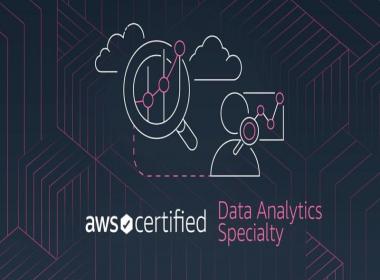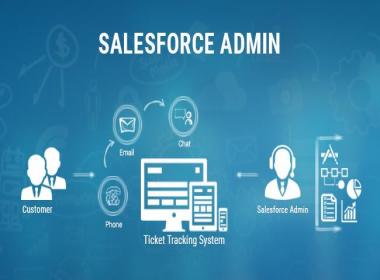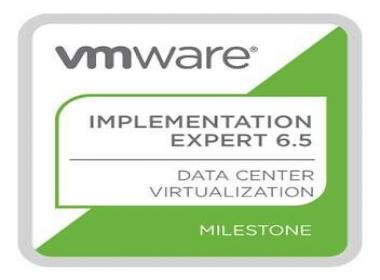
With the digital revolution of the tech transformation world, the healthcare business is quickly increasing. Cloud computing is frequently employed in the medical industry to enhance the organization's operational workflow. Everything is saved properly using cloud-based technology, from memory management to updating and preserving test records. Evaluating this cloud storage service as a smart decision if you are a healthcare expert seeking technology improvement for a smoother, safer, and profit-generating firm, hire dedicated developers India today to develop your idea.
The medical field is undergoing a digital revolution. The goal of providing tools in the healthcare field is to reduce access to healthcare record maintenance and its costs. The growth is in demand and supply of software solutions has brought new technology to its doorsteps as the fastest expanding sector.
Cloud computing is one of the digital breakthroughs in the healthcare business, and its adoption is on the rise. Companies are hiring Indian app developers to utilize this innovation since it is the most dependable and secure method of preserving all available records. Cloud computing is touted to be the next wave of digital growth, but we're not declaring that just for the sake of saying it, we have witnessed this innovation.
We also have evidence in the form of facts and statistics:
- By 2022, the global market for cloud technology in healthcare is anticipated to reach $35.0 billion.
- End-users of the public cloud have increased their spending by 23% globally.
So, while looking at these incredible cloud computing numbers, you might be willing to create one for your health organization. Let's take a look at cloud computing's concept and offerings before we get into how flaws this should close.
Introduction to cloud computing
It's a "piece of cake” to use cloud computing. It's an on-demand computing technology that makes a large variety of cloud-based network infrastructure accessible to a large number of customers at the same time. Data from the local server is kept in different places. This model enables data to be accessed from anywhere on the planet.
Previously, accessing information required being on a computer or server. And I had to keep track of a lot of information in a lot of files on my desktop. Users can share their information over the internet via cloud-based applications. Sky drive, Instagram, and Mail are examples of popular cloud computing services. Users may save an infinite amount of data, pictures, and movies on these cloud storage services.
What role does cloud computing play in the medical field
In the healthcare industry, cloud computing lowers entire administrative expenses and improves patient outcomes. Anyone can exchange rapid information from anywhere across the globe, including physicians to supervisors. This type of data exchange improves the foundation's ease and reliability.
The following are some of the biggest advantages of cloud computing:-
- Using virtual videoconferencing, the patient's details are upgraded in secs.
- Massive processing power enables the dumping of radiological pictures and genetic data.
- Increases the accuracy of information analysis and processing for diagnostics, medication, expense, and output.
- The ability to easily transfer electronic health records (EHR) among approved doctors, clinics, as well as other care institutions.
- Unknown and disorganized data can easily be removed without causing any problems.
- Cloud computing appears in a variety of shapes and sizes.
Service-Oriented Structure (IaaS):
This is a prominent cloud computing solution that eliminates the need for corporate hardware. It's an excellent option for small and midsize enterprises in need of virtual servers, routers, and data storage devices. The IT solution is both expensive and beneficial to the company's growth. It is outsourced as a pay-for-use service and is accessible as governmental, blended, or corporate infrastructural facilities.
Platform-as-a-Service (PaaS) :
The PaaS service offers a lot of flexibility when it comes to building powerful web apps. It also includes tools for setting up equipment and software systems. Multiple developers can work on a single project in an optimal business environment provided by PaaS solutions. It's a cutting-edge innovation that makes use of current datasets, such as a CRM tool.
What should be used for the development
For short-term initiatives, SaaS is an excellent option. It's a useful tool for CRM and a variety of online and mobile solutions. The technology enables the distribution of software through the internet to a variety of enterprises on a pay-per-use basis. It is controlled from a central place, thus there is no need for preservation.
We create online and mobile-based apps in nearly every genre at India app developer. By incorporating cutting-edge technology into our clients' software solutions, we open up new doors for them. We've gained professional experience in this ever-changing digital environment throughout the years. Our dedicated developers have extensive industry expertise, which aids in the development of unique solutions. If you're a healthcare organization considering making a technical modification to your current system, you can consult us before proceeding.
Now, without any more discussion, let's get to the meat of this article. Many flaws in healthcare are minimized by combining cloud computing and other technologies. Some of them have been stated below, and healthcare institutions should think about developing flawless application development.
Cloud Computing Services in the Medical Industry Minimize six Problem Areas:
Maintains Safety :
The health providers' security is ensured by the cloud servers. Users of cloud computing may not only access data from anywhere, but they can also make an automated backup. In the event of a data breach, such a solution saves interruption for medical personnel. Previously, the database was created individually on computers that could only be accessed from one location. In the event of a power outage or a system failure, the company will lose data.
To safeguard databases, cloud providers have made security, risk management, and monitoring services available. As a result, vulnerable online activity, illegal access, and data breaches are avoided.
Increased ability to use:
The hospital staff is having a lot of trouble with in-house information storage. There have been patient documents to amend, clients' files to manage, staff documents to keep a record of, and a slew of other minor duties to complete. Cloud-based solutions make it easy to log in from any website that uses web servers. It is readily compatible and exchanges data with other agencies promptly. Users receive auto-updated data as well as no software maintenance issues. As a result, such database usefulness was previously unavailable, and upgrading one was a time-consuming and costly procedure.
Data accuracy and speed:
When it comes to data handling, healthcare facilities must be precise and quick. However, as the amount of data collected grows, the systems' capacity diminishes. This occurs because traditional approaches are incapable of processing large data sets at the same time. Cloud computing allows users to handle data at fast speeds without experiencing any downtime. It ensures that no data is lost and that the medical center's correctness is maintained. The cost of maintaining physical servers is eliminated by using a cloud service to store all of the data. The user gets consolidated access to digital health information and can quickly obtain medical records and diagnostics for patients.
Machine learning and artificial intelligence:
When it comes to technology innovation in healthcare, the possibilities for integration are infinite. However, with the arrival of these two technological advancements, the health business now has it all. While hospitals continue to struggle with database complexity, cloud computing facilitates the integration of AI into healthcare operations. It aids in the streamlining of all little functions and tasks that must be completed by any member of staff. AI benefits the healthcare business in a variety of ways, including:
It aids in the detection, diagnosis, and treatment of medical crises like cancer
- For reliable and timely information, smart manufacturing automation can be used in conjunction with cloud-based servers.
- Speech recognition aids in the management of unstructured data and the preparation of reports for the transcription of patient interactions. As a result, conversational AI emerges.
- Speech recognition uses deep learning to prevent unwanted access.
- When it comes to incorporating such significant innovations, many such technological revolutions are conceivable for healthcare institutions.
- Once you enter the digital world, hoping for accomplishment with such powerful ideas, there is no stopping.
5. Supply chain maintenance: Medical devices, medicines, and tablets all require a large amount of data management. The protection of such items necessitates meticulous attention to detail, particularly in terms of the date of arrival. It contains information such as expiration dates, supplier information, and so on. Rather than just manually configuring these facts, full data may be saved and accessed via cloud services. It also informs users when their medications are about to expire and when they should get a refill.
6. Medical research and Innovation:
Medical professionals devote a significant amount of time to study to enhance their skills. Such information concerning surgeries and treatments may be collected via the cloud service. Data is separated by techniques to improve research and analysis easier. As a consequence, clinical studies and a thesis are produced for potential use by other experts.
Conclusion:
When it comes to digital change and innovation, the healthcare business is no exception. With its high-quality data storage capabilities, cloud computing has a lot of potential in the healthcare business. Economies are straining to fulfill the huge volume of healthcare demands in the midst of the COVID-19 epidemic. However, channeling such cloud-based services can result in significant improvements in the overall quality and cost of healthcare. Create a seamless cloud computing software solution to see the transformation for yourself. Discuss your needs with our consultants at India app developer, and we'll provide you with a suitable technological solution. Bring your idea to life!
Also read about:
Mice Control Melbourne Tips to Get Rid of Mice
Exploring the Benefits of Pelvic Floor Physiotherapy
Empowering Wellness A Guide to Pelvic Floor Physiotherapy








